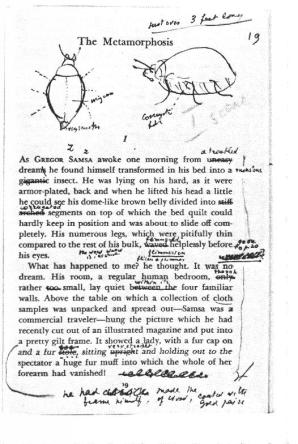
A few months ago I spent quite a while cataloguing my books using
LibraryThing, the most interesting tool of this kind I have come across. While most similar systems allow you to fetch bibliographical data using ISBN numbers or searching Amazon, this one makes it possible to search in 690 library data bases throughout the world. As a result I was even able to classify my copy of 中國書法大字典 (a wonderful dictionary of Chinese calligraphy I will talk about one day). Once you have started cataloguing your books you will begin to see which other members have similar libraries to yours. You also get a host of suggestions with regard to other books you might be interested in. These suggestions are generally very useful (unlike the mystifying ones generated by some other organisations). LibraryThing seems to attract quite a lot of people who really love reading and as a result there are any number of fascinating libraries which you can explore. I was delighted to find that 24 other people owned copies of Leo Lionni’s
Parallel Botany, (another favourite book I will talk about one day). It has long been out of print and sometimes I wondered whether anybody else had it. Among its more arcane features LibraryThing allows you to find out which books you share with
only one other member. Some people might also be interested in what it calls its Legacy Libraries (libraries belonging to famous people of the past). I apparently share 13 books with Marilyn Monroe (including Joyce’s
Ulysses) but only 5 with Flaubert , the same number of books I have which were also in General Patton’s library (Machiavelli’s
The Prince,
On war by Clausewitz, Sun Zi’s
Art of War, Gibbon’s
Decline and Fall and Ernst Junger’s brilliantly written but very disturbing glorification of warfare –
Storm of Steel). He must have really liked the last one, because he wrote very bad poetry which expressed the same kind of sentiment. For a sample
go here.
If you are like me and have devised any number of systems for arranging your books over the years, only to regularly forget how they worked, LibraryThing is precious because it allows you to attribute multiple tags to your books. As a result, you don’t have to worry whether a book should be put in a section for Ancient Borneo, left-handed writers or books your Aunt Mary might like to read because it can sit on those three virtual shelves simultaneously. If that level of complication is not enough for you, LibraryThing also shows you the tags which other people have used for the books you own ,which gives you a new perspective on your collection and makes it possible to add further dimensions to your system.
While I was engaged in all this I discovered a few sobering things. First of all, for about half of my books, all I could remember was that I had read them. That was the sum total of my recollection. So perhaps it would have made no difference if I had watched soap operas or collected miniature whisky bottles instead. What I remember from most of the other books I’ve read tells me that my mind must have the same kind of geometrical surface which is used for egg containers, because anecdotes and pebble-like information seem to collect there and remain firmly lodged for years, but I am unable to retain anything flat and extensive like the argument the author is trying to get across or the theories the anecdotes are aimed at illustrating (At very best they lie there crushed, crumpled and decipherable only in fragments).
For example, I know that I read Nabokov’s
Lectures on Literature and
Lectures on Russian Literature with great enthusiasm
and I have often recommended them. What I actually remember about these books, in all honesty, can be summarised as follows:
- He recommends using a dictionary and looking up words in it.
- He says something like “literature should be felt in the backbone”.
- He describes what a railway carriage was like in late 19th century Russia (for the purposes of understanding Anna Karenina).
- He talks about the way that Gogol’s metaphors go on so long that they become little stories of their own.
- As an entomologist, he tries to understand what kind of bug Gregor Samsa was turned into in Kafka’s Metamorphosis.
I probably remembered the last point so clearly because I studied a bit of entomology myself. (As a result of which I can tell you how a Mexican Jumping Bean jumps, but very little else). So I was interested to discover that in 1989 a TV film was produced from Nabokov’s Lecture on Kafka’s Metamorphosis with Christopher Plummer in the part of Nabokov.
Here’s the link:
(The illustration at the top of the post is from Nabokov’s teaching copy of The Metamorphosis.)
